- 0086-571-85302990
- sales@greenskybio.com
Ginseng root extract as fertilizer and feed ingredients.
2024-11-28

1. Introduction
Ginseng, a well - known and highly valued plant in traditional medicine, has been used for centuries in various cultures for its numerous health - promoting properties. In recent years, the potential of Ginseng Root Extract in non - medicinal applications, particularly as an ingredient in fertilizers and feeds, has been gaining increasing attention. This article aims to explore the unique characteristics of Ginseng Root Extract that make it a promising candidate for these applications, as well as the potential benefits it can bring to plant growth and animal health.
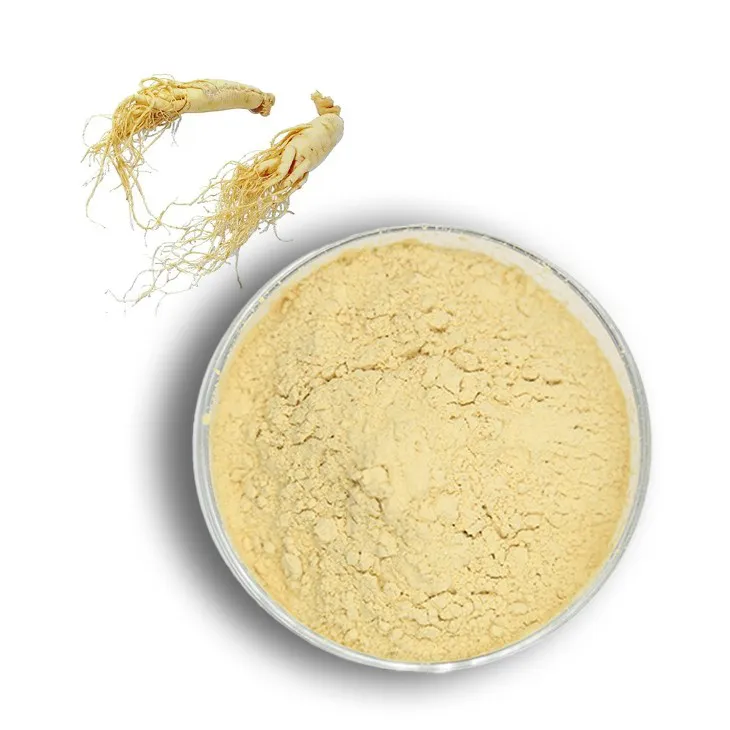
2. Properties of Ginseng Root Extract
2.1. Rich in Nutrients
Ginseng root extract is a rich source of various nutrients. It contains a significant amount of minerals such as potassium, calcium, and magnesium. These minerals play crucial roles in plant growth. For example, potassium is essential for photosynthesis, water regulation, and overall plant vigor. In animal diets, these minerals are also necessary for maintaining proper physiological functions, such as bone development in animals.2.2. Bioactive Compounds
The extract is also loaded with bioactive compounds. Ginsenosides, which are characteristic components of ginseng, have antioxidant properties. In plants, antioxidants can help protect against oxidative stress caused by environmental factors such as pollution and extreme temperatures. In animals, antioxidants can enhance the immune system and prevent cellular damage. Another group of bioactive compounds in ginseng root extract are polysaccharides. These can stimulate plant growth - promoting hormones and in animals, they can improve gut health by promoting the growth of beneficial bacteria.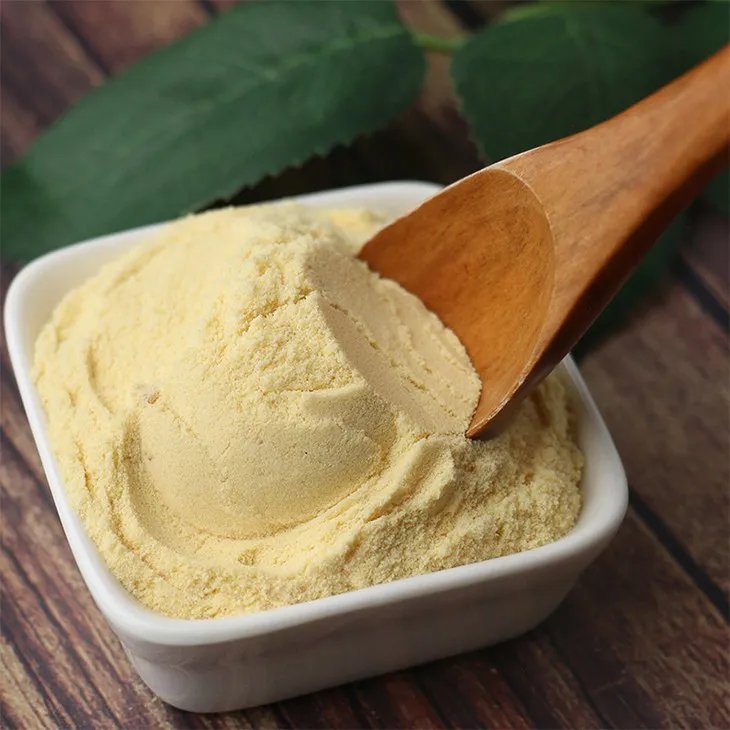
3. Ginseng Root Extract in Fertilizers
3.1. Enhancing Soil Fertility
When added to fertilizers, ginseng root extract can significantly enhance soil fertility. The nutrients present in the extract are slowly released into the soil, providing a continuous supply of essential elements for plants. This helps in improving soil structure as well. The organic matter in the extract can increase soil porosity, allowing better water infiltration and air circulation. For example, in sandy soils which have poor water - holding capacity, the addition of ginseng root extract - based fertilizer can improve the soil's ability to retain water, thus reducing the frequency of irrigation required.3.2. Promoting Plant Growth
The bioactive compounds in the ginseng root extract can directly promote plant growth. Ginsenosides can stimulate root development. A stronger root system enables plants to better absorb water and nutrients from the soil. Moreover, the polysaccharides in the extract can enhance the activity of soil microorganisms. These microorganisms play a vital role in decomposing organic matter and making nutrients more available to plants. In greenhouse experiments, plants treated with ginseng root extract - supplemented fertilizers have shown increased growth rates, taller stems, and larger leaves compared to those treated with conventional fertilizers.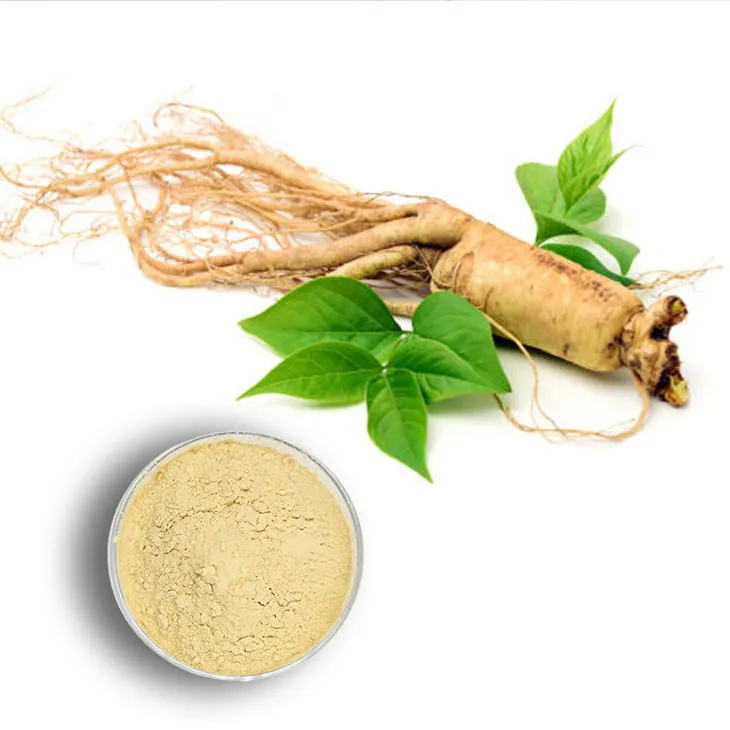
4. Ginseng Root Extract in Feeds
4.1. Nutritional Benefits for Animals
In animal feeds, ginseng root extract provides several nutritional benefits. As mentioned earlier, it contains important minerals that are essential for animal growth and development. For example, calcium is crucial for the formation of strong bones in livestock such as cows and sheep. Additionally, the bioactive compounds in the extract can enhance the digestibility of feed. The polysaccharides can help break down complex carbohydrates, making it easier for animals to absorb nutrients from the feed. This can lead to better feed conversion ratios, meaning that animals can convert feed into body mass more efficiently.4.2. Disease Resistance and Immune Enhancement
One of the significant advantages of including ginseng root extract in animal feeds is its ability to enhance disease resistance. The antioxidant properties of ginsenosides can protect animal cells from damage caused by free radicals, which are often associated with various diseases. In poultry, for instance, the addition of ginseng root extract to their diet has been shown to reduce the incidence of certain viral and bacterial infections. This is because the extract can strengthen the immune system by increasing the production of immune cells and antibodies. In swine, it can also help in reducing the impact of stress - related diseases, as it has adaptogenic properties that can help animals better cope with stressors.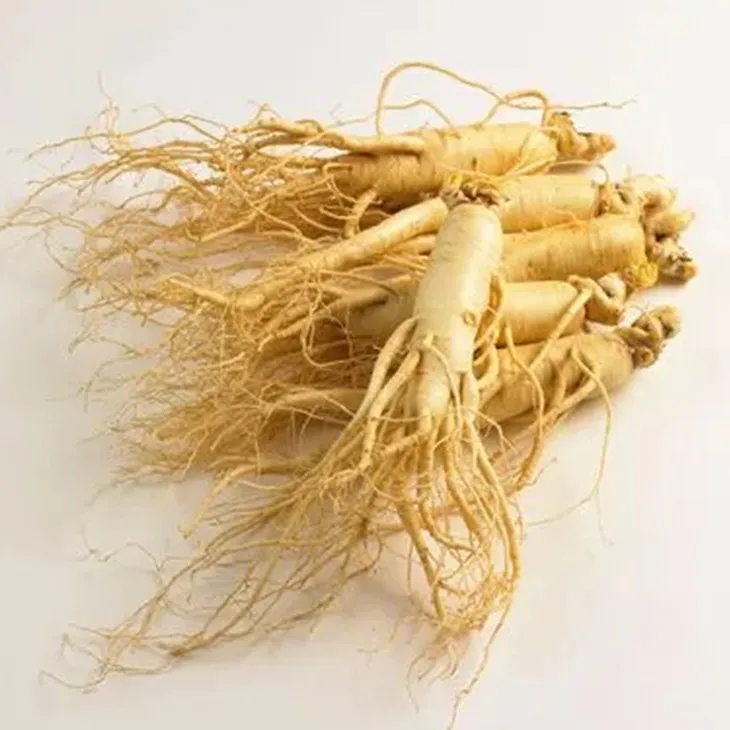
5. Production and Processing of Ginseng Root Extract for Fertilizers and Feeds
5.1. Extraction Methods
There are several methods for extracting ginseng root extract. One common method is solvent extraction, where solvents such as ethanol or water are used to extract the active components from the ginseng roots. Another method is supercritical fluid extraction, which uses supercritical carbon dioxide. This method is preferred in some cases as it can produce a more pure extract with less solvent residue. The choice of extraction method depends on various factors such as cost, efficiency, and the desired quality of the extract.5.2. Quality Control in Production
In the production of ginseng root extract for fertilizers and feeds, quality control is of utmost importance. Parameters such as the concentration of active components (e.g., ginsenosides and polysaccharides), the presence of contaminants, and the stability of the extract need to be carefully monitored. Standardized testing methods should be employed to ensure that the extract meets the required quality standards. For example, high - performance liquid chromatography (HPLC) can be used to accurately measure the concentration of ginsenosides in the extract.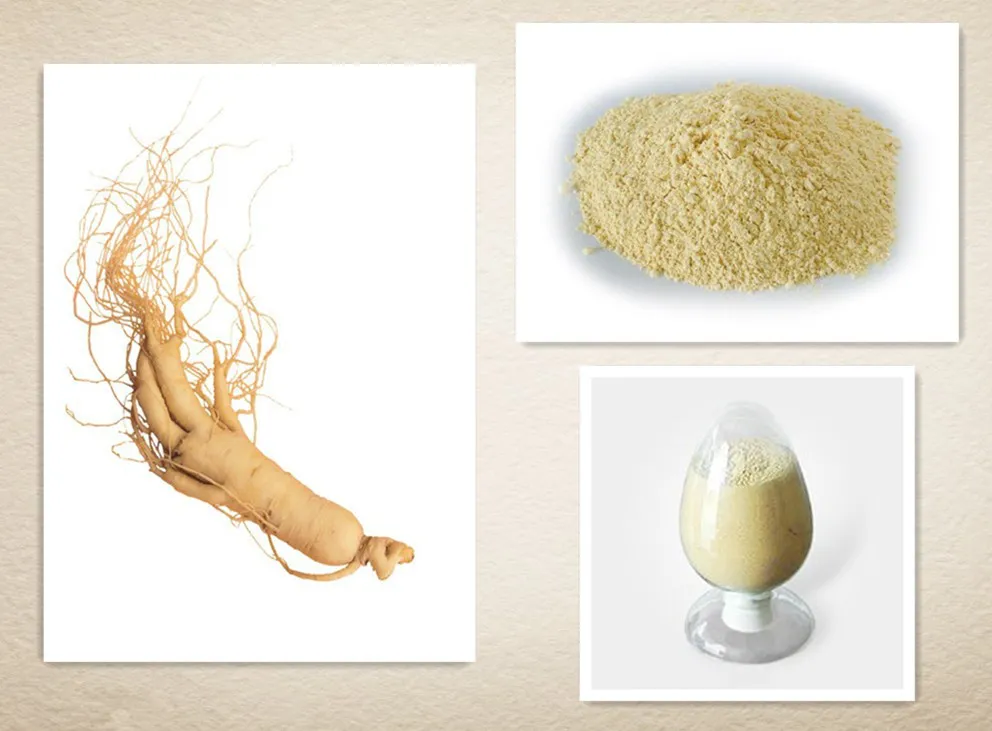
6. Challenges and Considerations
6.1. Cost of Production
One of the main challenges in using ginseng root extract in fertilizers and feeds is the cost of production. Ginseng is a relatively expensive plant to cultivate, and the extraction process can also be costly. This can result in higher - priced fertilizers and feeds containing ginseng root extract. However, as research and technology progress, more cost - effective production methods may be developed.6.2. Regulatory Aspects
There are also regulatory aspects to consider. Different regions may have different regulations regarding the use of ginseng root extract in fertilizers and feeds. For example, some countries may require specific labeling or safety evaluations before such products can be marketed. It is essential for producers to be aware of and comply with these regulations to ensure the legality and safety of their products.7. Conclusion
Ginseng root extract has shown great potential as an ingredient in fertilizers and feeds. Its rich nutrient content and bioactive compounds offer numerous benefits for both plant growth and animal health. While there are challenges in terms of cost and regulatory compliance, continued research and development may overcome these obstacles. As more is understood about the properties and applications of ginseng root extract, it is likely to become a more widely used and important component in the agricultural and livestock industries, potentially revolutionizing the way we approach plant fertilization and animal nutrition.
FAQ:
What are the main components in ginseng root extract that are beneficial for fertilizers?
Ginseng root extract contains various beneficial components. It may have elements like certain amino acids, minerals, and bioactive compounds. Amino acids can help in improving soil structure and nutrient availability. Minerals such as potassium, phosphorus, and nitrogen - like substances (in different forms) can be directly or indirectly beneficial for plant growth. The bioactive compounds might enhance the soil microbiome, which in turn aids in nutrient cycling and availability for plants.
How does ginseng root extract enhance soil fertility?
Ginseng root extract can enhance soil fertility in multiple ways. Firstly, it can improve the soil structure by binding soil particles together, which helps with water retention and air circulation. Secondly, it provides additional nutrients that are essential for plant growth. Thirdly, it can stimulate the growth and activity of beneficial soil microorganisms. These microorganisms play a crucial role in decomposing organic matter and making nutrients more accessible to plants.
What benefits does ginseng root extract bring to animal feeds?
In animal feeds, ginseng root extract can offer several benefits. It can enhance the growth rate of animals as it may contain nutrients and bioactive substances that support physiological functions related to growth. It also has the potential to improve the animals' disease - resistance. The bioactive compounds in the extract might boost the immune system of animals, making them more resistant to various diseases. Additionally, it could improve the quality of animal products, for example, by enhancing the nutritional value of meat or eggs.
How should ginseng root extract be used in fertilizers and feeds?
When using ginseng root extract in fertilizers, it should be properly mixed with other components according to the specific needs of the soil and plants. The concentration should be adjusted to avoid over - fertilization. In feeds, it needs to be incorporated in a balanced way to ensure that it does not disrupt the overall nutritional composition. The dosage should be determined based on the type and age of the animals. It is also important to ensure the quality and purity of the ginseng root extract to achieve the desired effects.
Are there any potential drawbacks or limitations of using ginseng root extract in fertilizers and feeds?
There can be some potential drawbacks. Cost can be a factor as ginseng root extract may be relatively expensive compared to other common fertilizer and feed ingredients. There may also be concerns regarding over - use. Excessive application in fertilizers could lead to nutrient imbalances in the soil. In feeds, over - dosing might cause adverse effects on the animals' health. Additionally, ensuring the consistent quality of the extract can be challenging as it depends on factors such as the source of ginseng and the extraction process.
Related literature
- The Role of Ginseng Root Extract in Sustainable Agriculture"
- "Ginseng Root Extract: A Promising Ingredient in Animal Nutrition"
- "Beneficial Effects of Ginseng - Based Fertilizers on Soil Health"
- ▶ Hesperidin
- ▶ Citrus Bioflavonoids
- ▶ Plant Extract
- ▶ lycopene
- ▶ Diosmin
- ▶ Grape seed extract
- ▶ Sea buckthorn Juice Powder
- ▶ Fruit Juice Powder
- ▶ Hops Extract
- ▶ Artichoke Extract
- ▶ Mushroom extract
- ▶ Astaxanthin
- ▶ Green Tea Extract
- ▶ Curcumin
- ▶ Horse Chestnut Extract
- ▶ Other Product
- ▶ Boswellia Serrata Extract
- ▶ Resveratrol
- ▶ Marigold Extract
- ▶ Grape Leaf Extract
- ▶ New Product
- ▶ Aminolevulinic acid
- ▶ Cranberry Extract
- ▶ Red Yeast Rice
- ▶ Red Wine Extract
-
Shikone Extract
2024-11-28
-
Red Vine Extract
2024-11-28
-
Oyster Mushroom Extract Powder
2024-11-28
-
Clove Powder
2024-11-28
-
Mango flavored powder
2024-11-28
-
Apricot Powder
2024-11-28
-
Giant Knotweed Extract
2024-11-28
-
Chaste Berry Extract
2024-11-28
-
Bilberry Extract
2024-11-28
-
Grape Leaf Extract
2024-11-28





















